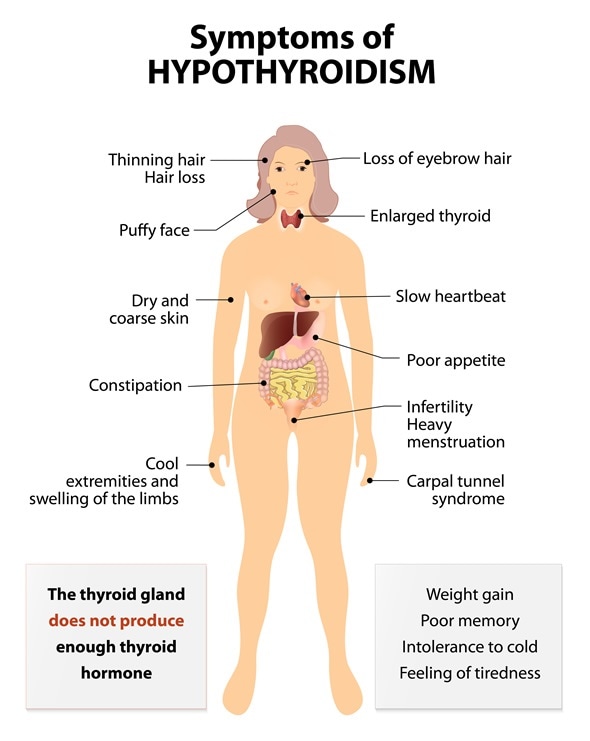
It is generally used as a guide of thyroid health, but just what are normal TSH levels? This article explores why your levels may be different than the norm and what it means for thyroid health. Note that every section in this article contains a 'summaries' box (such as this one) so you can save yourself some time. If there's anything that needs explanation or you're unclear about something, then don't hesitate to contact your doctor or pharmacist – they'll be able to help.
The thyroid gland is a small butterfly-shaped gland located in the neck. When your body produces enough thyroid hormone (thyroxine), your body can produce all the hormones it needs to keep you healthy.
Thyroid hormones play a key role in supporting the immune system, regulating appetite, reducing the risk of osteoporosis, and regulating cholesterol levels. Since the gland makes very few of these important hormones, your body begins to show signs of imbalance.
Thyroid problems are usually caused by an underactive thyroid gland. Since the gland produces less thyroid hormone and does not produce enough thyroid hormone, your body cannot function normally. Your thyroid gland will not secrete enough thyroid hormone for normal production.
Why should your doctor check your normal TSH levels? Doctors will look for thyroid problems to rule out any underlying medical cause. In some cases, low thyroid hormone levels can be caused by iodine deficiency. In other cases, low levels can be caused by a medical condition such as hyperthyroidism, when your body lacks enough thyroid hormone.
Your doctor will also check you for any physical signs of a problem. For example, if you are experiencing fatigue and fever, it may be wise to discuss treatment options with your doctor, as these can also be signs of hyperthyroidism. They may even treat your hyperthyroidism to try and improve your symptoms.
Another possible cause of lower than normal thyroxine levels is thyroid cancer. It is also possible that yours thyroid gland is damaged due to vitamin deficiency.

The normal TSH level is not always the same for everyone
Some people may have a very low level, while others may be at a normal level. However, it is very important to maintain a normal level of thyroid hormone so that you can continue to be healthy and that your body can properly function.
There are also some medications that you can take that can reduce the level of thyroid hormone that you have. This includes medicines that are used for treating hyperthyroidism and those that are used to treat Lupus, arthritis and diabetes.
There are also prescription drugs called HRT and hormone replacement therapy. They are used to regulate hormone levels and in cases of hypothyroidism. If you are using hormone replacement therapy, you should talk to your doctor about possible side effects.
However, even if your level is normal, you can still suffer from hypothyroidism. This condition can cause symptoms such as dry skin, weight gain, weight loss, muscle weakness Bell's palsy and muscle cramps, depression and anxiety. and fatigue.
Hypothyroidism is usually treated with hormone replacement therapy. Your doctor may also prescribe a synthetic hormone or a drug called levothyroxine. The synthetic hormone is very similar to the thyroid hormone that your body naturally produces in your pituitary gland.
There are also a number of natural treatments that can help you control your symptoms. If you feel that your symptoms are driving you nuts, then you may want to consider using a homeopathic remedy. Natural remedies are usually safe, inexpensive and easy to use. Some examples are: St. John's Wort, ginger, licorice, dandelion root, and witch hazel.
